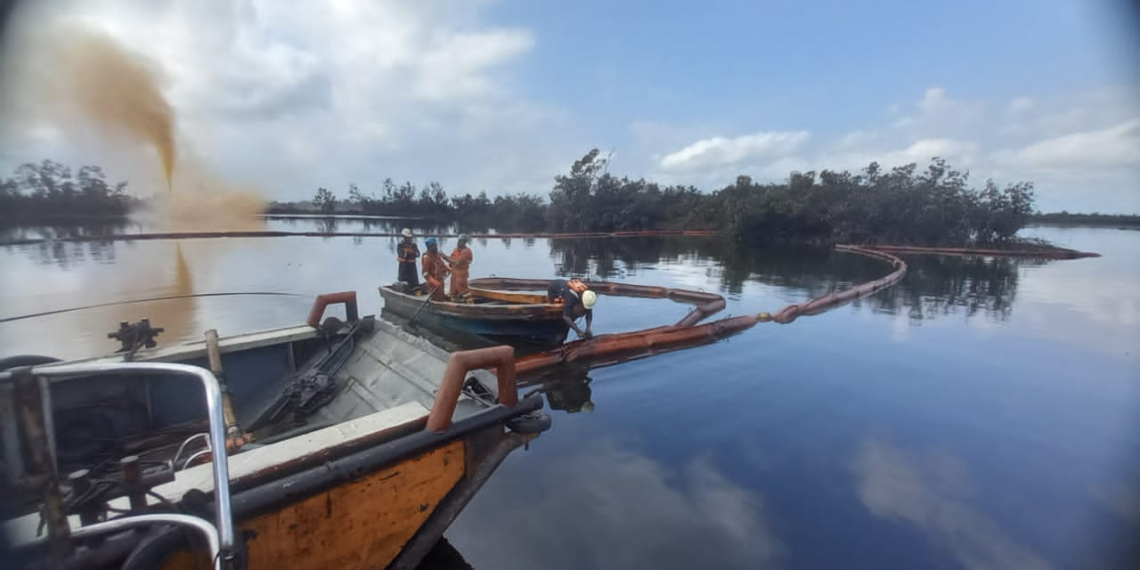...To get all news updates, Join our WhatsApp Group (Click Here)
Also Join our WhatsApp Channel (Click Here)
About 3,000 barrels of crude oil were lost to the 15 November oil spill from the offshore Egina Floating Production Storage and Offloading (FPSO) vessel of TotalEnergies.
The FPSO located 130 kilometres off the Atlantic coastline from Port Harcourt has the capacity to produce 200,000 barrels of crude daily and can store 2.3 million barrels on board.
The Director-General of the National Oil Spills Detection and Response Agency (NOSDRA), Idris Musa, told the News Agency of Nigeria (NAN) on Sunday that the clean-up of the spill was still ongoing.
He added that NOSDRA and TotalEnergies did not spare any effort in tackling the pollution to minimise its impact on the environment, a development that kept the spilt crude from reaching the coastline.
“The spill has not hit the coastline because of the effectiveness of the spills contingency plan we deployed,” he said.
Mr Musa explained that NOSDRA deployed high-level personnel and activated the National Oil Spills Contingency Plan to contain the spill.
“The spill was not a minor one; it was the response strategy put in place that resulted in limited impact and we have been tracing and tracking the oil slick and supervising response efforts.
“NOSDRA deployed personnel led by a director to the site and we have remained on the spill site as well as granting the requisite approvals to hasten the response,” he said.
Mr Musa explained that TotalEnergies took steps that made the response swift and effective, adding that other oil companies assisted in the response.
He stressed that clean-up required a collaborative response of “oil industry stakeholders” which, in this case, deployed aircraft, and at least five vessels in the application of 15,000 litres of liquids to clean the waters.
You can get every of our news as soon as they drop on WhatsApp ...To get all news updates, Join our WhatsApp Group (Click Here)
Also Join our WhatsApp Channel (Click Here)











